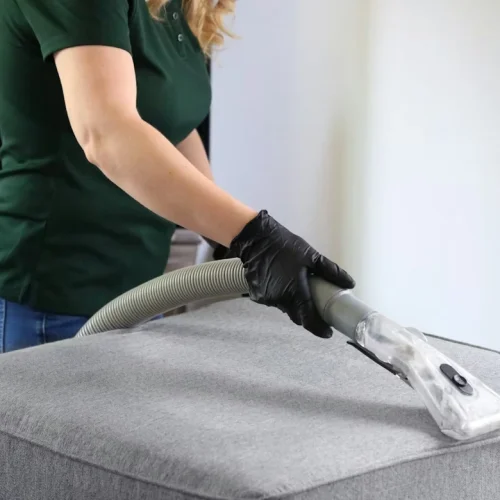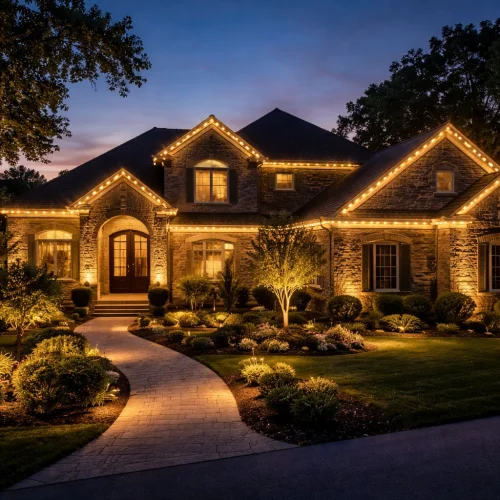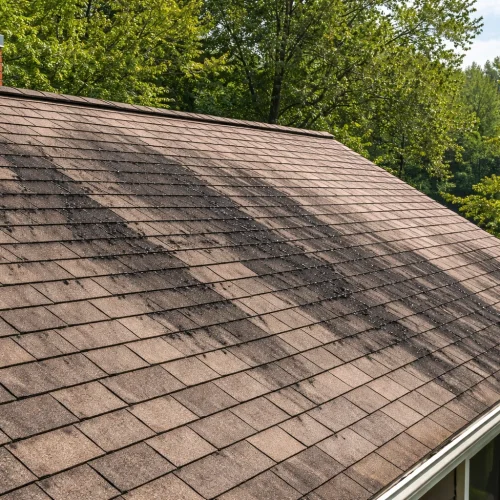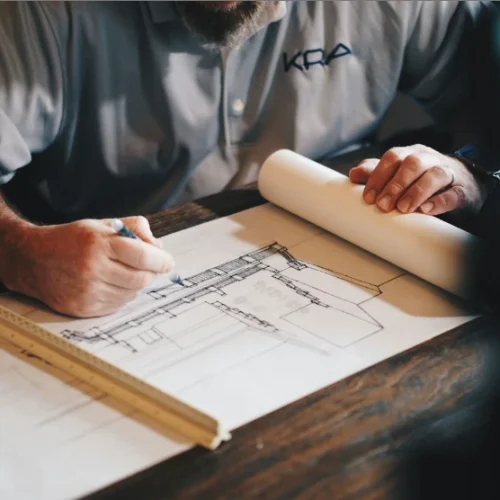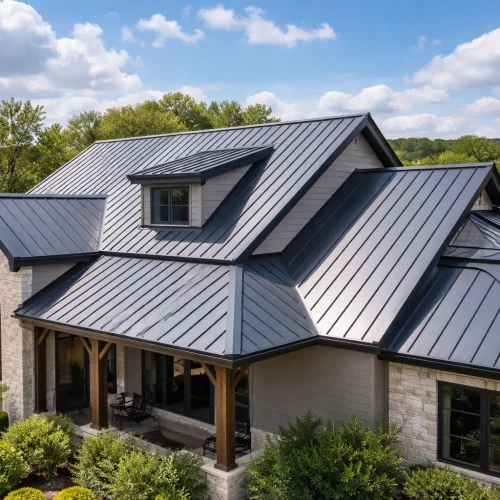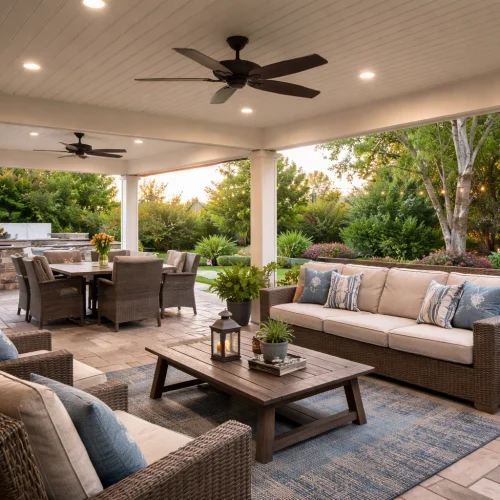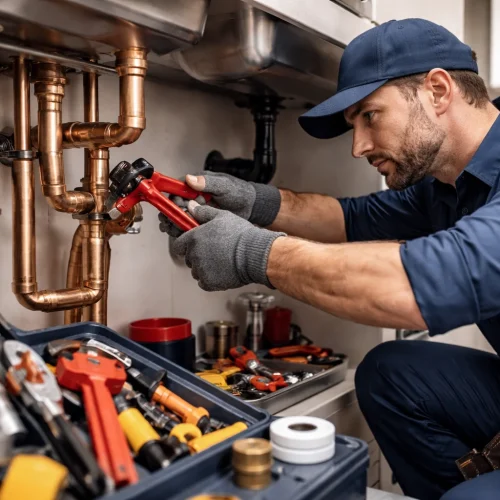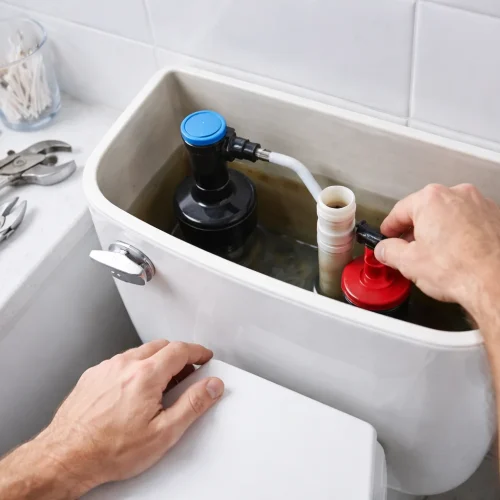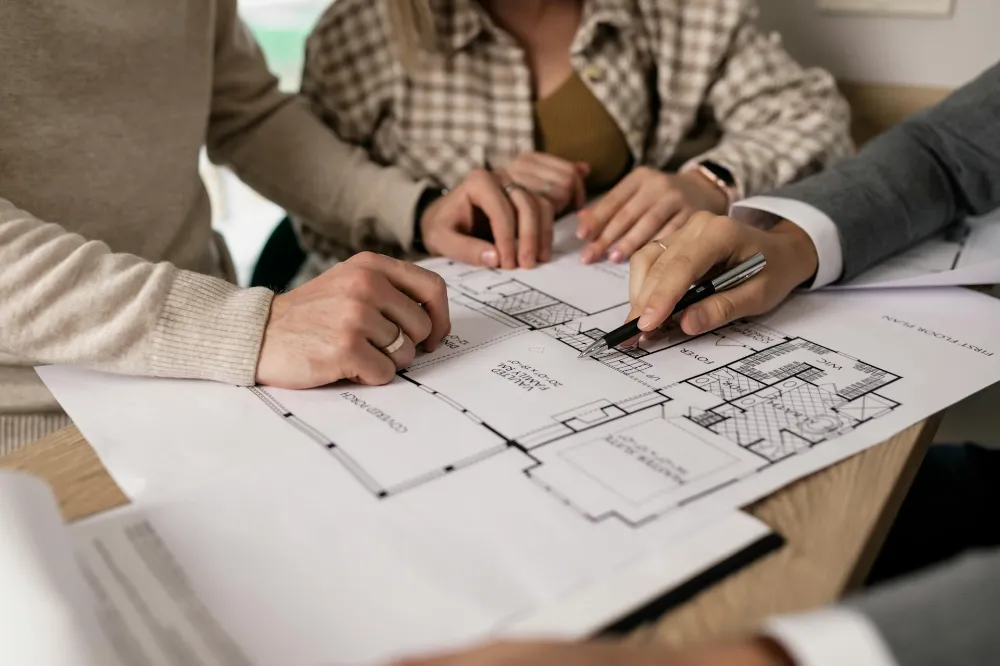
When you’re walking through a home that might become yours, it’s very easy to get caught up in the obvious features you can see. Your attention drifts toward the gleaming countertops, the big wide windows and the way sunlight hits the living room floor. Those are the things people tend to talk about the most when they tour a property but quietly hiding behind the walls there is something else which can have an enormous effect on your comfort and your wallet and that something is the HVAC system.
Heating, ventilation and air conditioning are about much more than simply keeping you warm in winter or cool in summer. They are about how much money you’ll spend on energy, the quality of air you breathe and how often you will be forced to schedule repairs.
If a system is in great condition it can keep your home comfortable year-round while lowering your bills but if it has been ignored for years, it can become one of the most frustrating and expensive problems you inherit. Here’s what you should look for in an HVAC system when buying a property.
Why It Matters Who Worked on the HVAC
The truth is that the brand or age of the HVAC unit only tells part of the story. The skill of the people who installed and maintained it plays a huge role in how well it works and how long it lasts as poor workmanship can quietly cause trouble for years before you notice anything is wrong which is why paying attention early matters.
One credential worth knowing about is NATE which stands for North American Technician Excellence. This is not just a badge on a uniform. It means the technician passed tough exams covering installation, maintenance and repair. The importance of NATE certification lies in the fact that these professionals are trained to keep systems efficient and safe which often leads to fewer breakdowns and a longer life for the unit.
When evaluating a home’s HVAC system, make sure you ask the following questions:
- Who installed or serviced the system
- Whether those technicians were certified
- Whether service records are available
These answers might seem like small details but they can save you thousands in the long run. Imagine a couple who moved into a home thinking the HVAC was fine because it looked new. They might later find out that a friend of the seller had installed it without a license. Two winters later, the system might fail and they may have to pay for a full replacement because the warranty is invalid.
Buyer Tip: If you can’t verify credentials, hire your own certified technician to do a pre-purchase inspection. The cost is minor compared to replacing an entire system.
Finding Out the System’s Age and What It Means
Even the best HVAC systems have limits on how long they can last. While some may run for decades with good care, most will eventually show their age. Here’s a simple guide:
- Furnaces last about 15–20 years
- Air conditioners last about 10–15 years
- Heat pumps last around 10–15 years
You can often find the manufacturing date on a plate or sticker on the unit. If reading the serial number feels like decoding a secret message, your home inspector or an HVAC technician can help.
Look for signs which show the system might be struggling such as:
- Rust or corrosion on parts
- Unusual sounds like rattling or banging
- Trouble keeping a steady temperature in the home
Picture this: A neighbor buys a house without checking the HVAC age. It is only after moving in that they realize the furnace is 24 years old and barely working. Within three months, they face a $6,000 bill to replace it. That kind of expense can be avoided if you ask the right questions upfront.
Buyer Tip: Even if the system is older, a clear history of regular maintenance can extend its life. Don’t write it off automatically.
Why Energy Efficiency Should Be a Priority
If you’ve ever opened an unexpectedly high energy bill, you already understand why efficiency matters. An inefficient HVAC system uses more energy to do the same job which drains your wallet month after month.
Here’s what to check:
- SEER rating for cooling efficiency
- AFUE rating for heating efficiency
- Energy Star label for certified performance
Higher ratings mean better efficiency and lower bills and while efficient systems often cost more upfront, they usually pay for themselves in savings over time. They also reduce your environmental impact which is something many buyers value more today than ever before.
Think of it this way. A system with a high SEER rating might save $40–$60 a month on energy costs compared to an older, less efficient one. Over ten years, that’s several thousand dollars which could go toward vacations or home upgrades instead of utility bills.
Buyer Tip: If you fall in love with a home which has an older inefficient unit, consider negotiating a price reduction to cover a future upgrade.
Remember the Ductwork
The HVAC system depends heavily on its ductwork as even a brand-new high-end unit will not work well if the ducts are damaged, dirty or leaking.
Common ductwork issues include:
- Leaks which allow heated or cooled air to escape
- Poor insulation which forces the system to work harder
- Blockages which reduce airflow
During your inspection, have the ducts checked thoroughly. If certain rooms feel stuffy or drafty, there is a chance the ductwork is part of the problem. The good news is that duct repairs are usually far less expensive than replacing the entire HVAC system.
Picture this: a friend of yours skips duct inspection thinking it isn’t that big of a deal. They later discover that 30% of their cooled air is escaping into the attic because of leaks. The repairs will not be cheap and could have been handled by the seller before purchase.
How the HVAC System Affects Health
A neglected HVAC system can spread dust, allergens and even mold spores throughout your home. This is not just a comfort issue as it can directly affect your health.
Signs of poor air quality include:
- Musty or stale odors
- Excessive dust on surfaces
- Uncomfortable humidity levels
Some modern HVAC systems include features like UV light purifiers or whole-home humidifiers which can improve air quality and make the home more comfortable. If you have asthma, allergies or other breathing issues, these upgrades can make a noticeable difference in daily life.
Buyer Tip: Ask if the home has advanced air filtration. It’s a small detail but it can make everyday living much more pleasant.
Why Maintenance Records Matter
Maintenance records are like a medical history for the HVAC system as they can tell you exactly how well it has been cared for.
Good records should list:
- Dates of service
- Specific work completed
- Credentials of the technician
If no records are available, it does not automatically mean the system was ignored but it does mean you will need a professional to check things over before closing the deal. This step might cost a little now which feels unnecessary but it can prevent much bigger costs later.
Buyer Tip: A seller unwilling to share maintenance history might still agree to pay for a professional inspection before closing so do ask about it.
Listen to the System
The way an HVAC system sounds can reveal a lot. A gentle hum is fine but loud banging, rattling or buzzing sounds mean something might be wrong.
A noisy system can:
- Disrupt your sleep
- Make it harder to work from home
- Indicate failing internal parts
If you ignore a rattling noise during your tour thinking it was minor, you might have to deal with a major problem like a failed blower motor that could cost you thousands of dollars. These sounds serve as early warnings you should take seriously.
Spotting Red Flags During a Home Tour
As you walk through a property, stay alert for signs which indicate that the HVAC system might be in trouble. Look for:
- Uneven temperatures in different rooms
- Odors like mildew or burning from vents
- Dust or mold around registers
- Outdoor unit surrounded by debris
- Bent fins or rust on the casing
These warning signs should be documented and shared with your home inspector as sometimes they point to small repairs which are easy to fix. Other times they indicate serious problems which can affect your decision to buy.
The Role of a Home Inspector and When to Call a Specialist
A general home inspector will check the HVAC system as part of their review. They will:
- Inspect the unit for visible wear or damage
- Test heating and cooling performance
- Look for obvious signs of poor maintenance
If you spot anything suspicious, ask them to focus on those areas and if they find problems, bring in a licensed HVAC specialist for a more detailed inspection. Specialists can:
- Measure refrigerant levels
- Check internal components
- Test electrical connections
Picture this: One couple chose to hire a specialist after their inspector noted weak airflow. It turned out a small refrigerant leak was the cause. Catching it early saved them from a much more expensive repair months later.
Negotiating HVAC Repairs or Replacement Before Closing
If your inspection reveals HVAC problems, you are not out of options. Many buyers assume they must either accept the system as-is or walk away from the deal but in reality, there is often room to negotiate.
Some ways to handle this include:
- Requesting the seller to repair the system before closing
- Asking for a price reduction to cover repair costs
- Negotiating for the seller to replace the system entirely
If you are a buyer and discover during inspection that the air conditioner’s compressor is failing, instead of walking away, you can negotiate thousands of dollars worth of credit at closing which can cover a brand-new high-efficiency replacement. This works well because you could choose the unit yourself and ensure it is installed by a certified technician.
Buyer Tip: Always get repair estimates in writing from a licensed HVAC contractor as this gives you a clear number to negotiate with rather than guessing at the cost.
Seasonal Considerations When Evaluating an HVAC System
The time of year you’re buying can affect how well you can test the HVAC system. If you’re purchasing in summer, you might not be able to fully evaluate the heating function and the same goes for cooling during the winter months.
If you cannot test the system in both heating and cooling modes, consider:
- Requesting maintenance records from the opposite season
- Hiring a specialist to check dormant system components
- Asking the seller for proof of recent service on both functions
A couple who bought in January couldn’t test the air conditioning. They accepted the seller’s word that it worked fine. When summer came, the system barely cooled the home. Repairs cost over $1,000 which could have been avoided by requesting proof of summer service during negotiations.
Buyer Tip: Even if the opposite-season system works fine now, remember parts can wear faster when unused for months. Regular testing and servicing keep them reliable year-round.
Final HVAC Checklist for Buyers
Before making your final decision, review this checklist:
- Was the system installed by qualified professionals?
- What is the system’s age and current condition?
- Do the efficiency ratings meet your needs?
- Is the ductwork in good shape?
- Does the air feel fresh and healthy?
- Is there a clear maintenance history?
The Bottom Line
An HVAC system may not be the first thing you notice when buying a home but it can have a massive impact on your comfort, health and budget. If you know what to look for and ask the right questions, you can avoid expensive surprises.
When you find a home with a reliable HVAC system which has been well maintained, you are not just buying a building, you are buying the comfort and peace of mind which will last for years. It means every season will be easier to enjoy, whether you’re escaping the summer heat or staying warm during a freezing winter night. It also means you’ll spend less time worrying about breakdowns and repair bills and more time enjoying your home.
Choosing wisely now creates an everyday living experience which is quieter, cleaner and far more efficient than most people realize.


